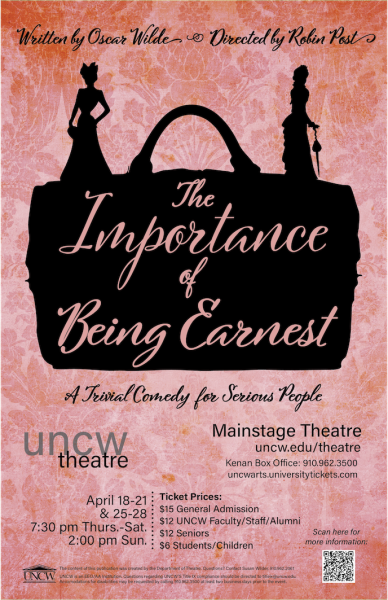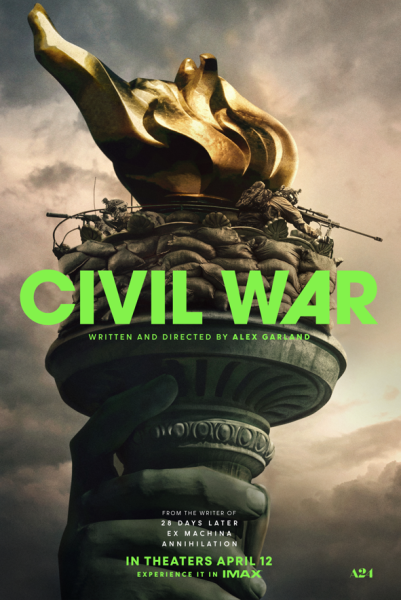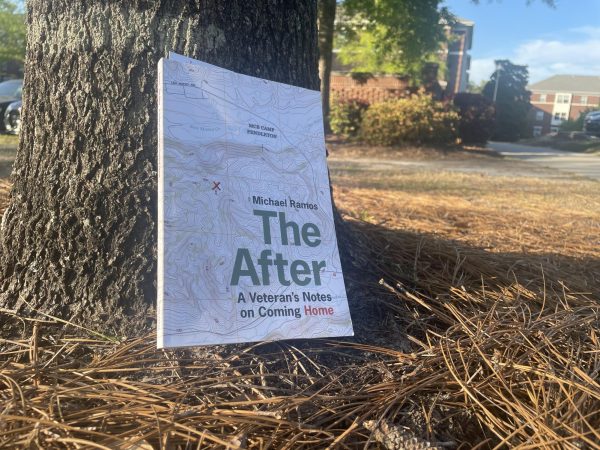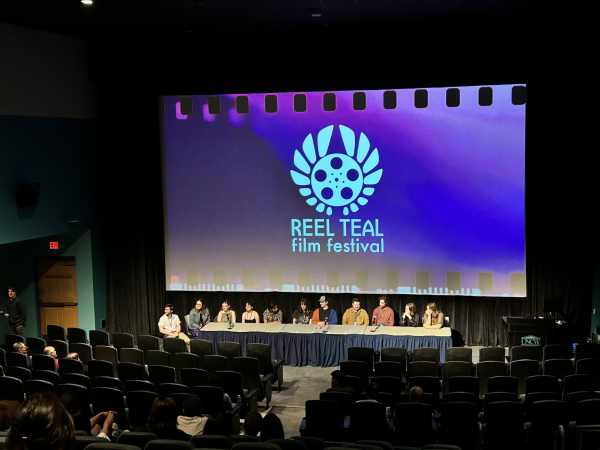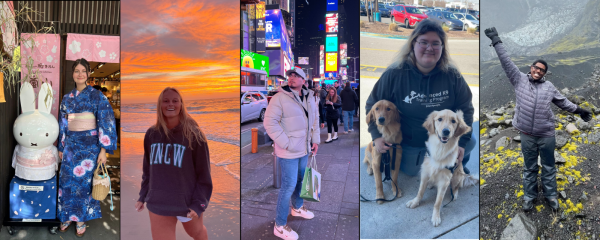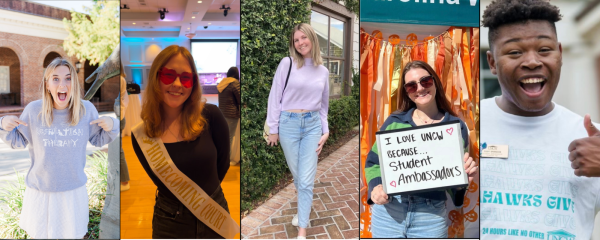Author of “Silver Linings Playbook” Matthew Quick visits UNCW
March 29, 2013
The author of the highly successful book-turned-film, “The Silver Linings Playbook,” had much advice to give students and members of the public at a lecture that took place Tuesday, March 26.
“If you do what you want to do, you never have to work a day in your life,” said author Matthew Quick.
Quick shared his story of struggling with self-identity in a very intimate, conversational way. He spoke of his personal struggles: wanting to be a writer while growing up in a home where men were expected to be strong and work hard, and the embarrassment he had to the point of hiding a secret, red journal from his parents.
Growing up with little money in north Philadelphia, Quick was pressured to choose a job for stability, so chose the path of becoming a high school English teacher — even though it wasn’t what he necessarily wanted to do. He got a great job working at an elite high school on the opposite side of the town where he grew up.
“I loved teaching, but I realized at 30 that I had stopped doing what I love – writing. I started to feel trapped in a dangerous way. I went into a deep, dark depression,” Quick said. “I could wear a mask in class at school but I was an absolute wreck. Every day I’d come home and fall apart.”
Quick knew that he had to make big changes in his life. He explained how his wife made the arrangements for them to move into her parent’s basement in Massachusetts so that he could attend a low-residency MFA program and do nothing but write.
“I was running one winter day and saw a beautiful silver lining on a cloud. I thought: What if I was to make a character that had a delusional philosophy about silver linings?” said Quick.
So he did.
After 75 rejection letters, Quick finally got the acceptance letter he’d been waiting for. The literary agent loved everything except the story’s original title “Clouds,” Quick said.
The book and film attracted much attention from the mental health community, since Quick’s main character, Pat, suffers from bi-polar disorder and has trouble adjusting to life outside of a mental health facility. Quick’s experience working with autistic teens and dealing with his own depression gave him the experience to create a character relatable to those who have suffered from mental health issues.
The UNC Wilmington Association for Campus Entertainment wanted to bring Quick to campus because of his success.
“I was looking for an author relevant to bring. I thought he was a good choice because of the popularity of his movie,” said Katy Gallagher, ACE’s voice chair.
Students from many different majors and backgrounds came out to see Quick speak.
“I came out because ‘Silver Linings Playbook’ was a great film,” said graduate liberal studies student Sarah Bodes. “I’m in a GLS advanced screenplay writing class. My professor thought the plot character development in the film was similar to that in my own screenplay. I think she hoped I’d adapt my character plot to be more like this story’s, so we studied the film in class.”
Other students attended the event simply because they enjoyed the film.
“I’ve seen the movie and want to hear what he has to say. I am thinking about reading the book next,” said Kathryn Allman, an art history major.
Some students came to the event because they were bigger fans of the book than the film.
“I thought the book was better than the movie. Reading is what I do in my spare time. I came out to meet the author and maybe get an autograph,” said Megan Frick, Marine Biology major.
Quick’s inspirational journey made for grand applause at the end of his speech. Many students stuck around afterward to get a signed copy of his book, like UNCW alumni, Marcus Dawson.
“I was working the event and just started reading ‘Boy 21,'” said Dawson. “I enjoyed the movie and was excited to hear that he was coming.”
Quick’s inspirational words left the crowd on a positive note.
“It’s hard to put yourself out there,” Quick said. “I had absolutely no connections and I made it possible.”














